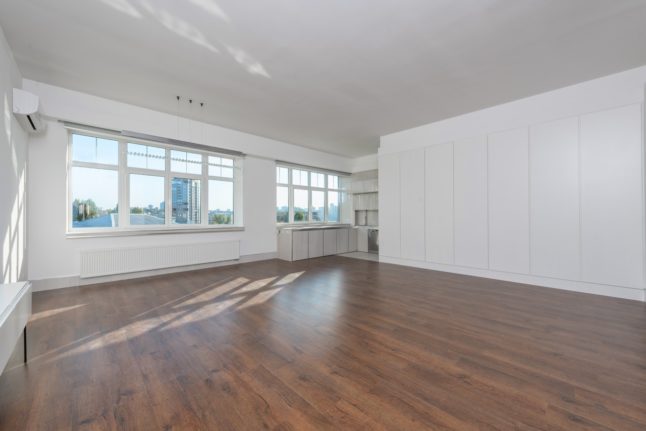This is what we already know in regards to Switzerland’s rental market: apartments are cheaper/more expensive in some cantons and regions than in others.
As a rule, areas in and around major cities and economic hubs (especially multi-national ones) have higher property prices — both for tenants and home buyers — than smaller, more remote towns and rural areas.
For instance, rents in the region of Zug and Zurich, as well as Lake Geneva (which comprises the city and canton of Geneva, and parts of Vaud), are the highest in Switzerland, while Jura, Neuchâtel and non-touristic areas of Valais are much cheaper.
READ MORE: These maps reveal where rent prices are highest in Switzerland
However, the news platform Watson took a slightly different approach in analysing not just the cantons, but 101 labour market regions within.
“These areas, which have been in force since 2019, are delimited according to living and working spaces, and are based on the movements of workers between their place of residence and place of work”, Watson explains.
The news outlet compared the prices for 3.5, 4.5 and 5.5-room apartments in various employment markets, based on Homegate listings.
The findings confirmed the general trend: “The closer to the centre of a large city, the more expensive it gets. The demand there is greater than the supply.”
3.5 room apartment
In 2021, the lowest median rent for a 3.5-room apartment (a two-bedroom flat) was in the labour market regions of Visp (Valais) and Samedan-Pontresina (Graubünden).
The lowest rent for nine flats of this size was 500 francs.
The other low-rent areas:
- Biasca (Ticino): median price 950 francs
- Tramelan-Valbirse (Bern): median price 995 francs
- Delémont (Jura): median price 1,075 francs
On the other hand, “anyone who wanted a 3.5-room apartment in Le Grand-Saconnex near Geneva had to dig deeper into their pockets”, Watson noted.
The median price in 2021 in this posh district of Geneva was 4,950 francs, with the cheapest apartment costing 3,100 francs a month. The other two Geneva communities with the highest rents are Vernier-Lancy (3,500 francs median rent) and Thônex–Chêne-Bougeries (3,000 francs).
“Rents in the Lake Geneva region are among the highest. Not only the location on the lake plays a role, but also the economic potential”, Simon Hurst, Senior Consultant at the real estate appraiser IAZI/CIFI told Watson.
READ MORE: Why is Geneva’s rent the highest in Switzerland?

4.5-room apartment
The cheapest three-bedroom flats — 955 francs — can be found in Moutier, Jura.
The other ones are in La Chaux-de-Fonds, Neuchâtel, where the median price is 1,045 francs, followed by Brig-Glis, Valais (1,050), and Biasca, Ticino (1,075).
As far as the highest rents, they can again be found in the Lake Geneva region, with Zurich not far behind:
- Geneva: median price 3,400 francs
- Zurich: 3,130 francs
- Küsnacht (Zurich) 2,990
5.5-room apartment
The rental market of this size is comparatively small, so there were fewer than 50 advertisements in 50 labour market regions, according to Watson.
The lowest median rent, 1,435 francs, was found in Brig-Glis (Bern), followed by La Chaux-de-Fonds (1,490), and Widnau-Au (St. Gallen), 1,655 francs.
The highest prices are, again, in the Zurich and Lake Geneva areas: median price in Zurich: 4,275, in Geneva: 4,200, in Nyon (Vaud): 4,000.
But if you think this is expensive, just wait: in the fashionable resort of St. Moritz (Graubünden), the median price is a whopping 13,365 francs for a 5.5-room flat.
However, Hurst put this numbers into perspective “We don’t have enough details about the properties there, but St. Moritz is a special market”.
“I assume that many of the advertisements are for holiday properties, mostly luxury apartments”, he said.
READ MORE: How rent prices vary in different cities in Switzerland



 Please whitelist us to continue reading.
Please whitelist us to continue reading.
Member comments